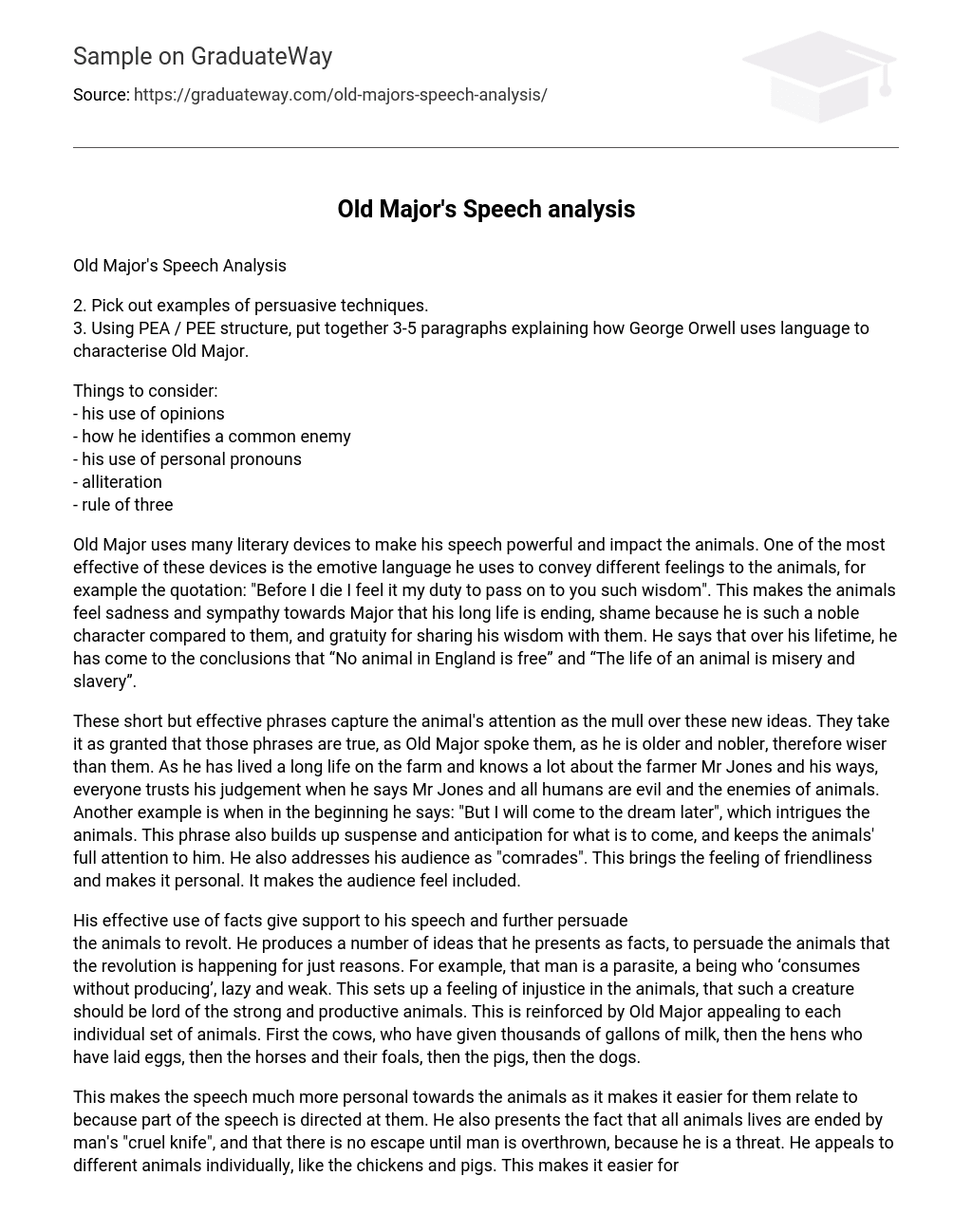Old Major uses many literary devices to make his speech powerful and impact the animals. One of the most effective of these devices is the emotive language he uses to convey different feelings to the animals, for example the quotation: “Before I die I feel it my duty to pass on to you such wisdom”. This makes the animals feel sadness and sympathy towards Major that his long life is ending, shame because he is such a noble character compared to them, and gratuity for sharing his wisdom with them. He says that over his lifetime, he has come to the conclusions that “No animal in England is free” and “The life of an animal is misery and slavery”.
These short but effective phrases capture the animal’s attention as the mull over these new ideas. They take it as granted that those phrases are true, as Old Major spoke them, as he is older and nobler, therefore wiser than them. As he has lived a long life on the farm and knows a lot about the farmer Mr Jones and his ways, everyone trusts his judgement when he says Mr Jones and all humans are evil and the enemies of animals.
Another example is when in the beginning he says: “But I will come to the dream later”, which intrigues the animals. This phrase also builds up suspense and anticipation for what is to come, and keeps the animals’ full attention to him. He also addresses his audience as “comrades”. This brings the feeling of friendliness and makes it personal. It makes the audience feel included.
His effective use of facts give support to his speech and further persuade the animals to revolt. He produces a number of ideas that he presents as facts, to persuade the animals that the revolution is happening for just reasons. For example, that man is a parasite, a being who ‘consumes without producing’, lazy and weak. This sets up a feeling of injustice in the animals, that such a creature should be lord of the strong and productive animals. This is reinforced by Old Major appealing to each individual set of animals. First the cows, who have given thousands of gallons of milk, then the hens who have laid eggs, then the horses and their foals, then the pigs, then the dogs.
This makes the speech much more personal towards the animals as it makes it easier for them relate to because part of the speech is directed at them. He also presents the fact that all animals lives are ended by man’s “cruel knife”, and that there is no escape until man is overthrown, because he is a threat. He appeals to different animals individually, like the chickens and pigs. This makes it easier for them to accept what will happen to them individually if the do not revolt against Jones. This threatens the animals and they feel like they should have a say in their own faith, therefore are persuaded to go against Jones.
He also makes use of rhetorical questions to impact the animals. Old Major asks the animals question which are sometimes unanswerable or he answers them by him self which stuns the listeners and make them accept what he says. He questions them “Whats the nature of our lives?” He also answers them, “laborious and short”. This makes the animals accept that their lives could be much better.
Major also employs certain pronouns for his speech which makes the other animals as equal as he is. Major never lets the farm animals think he is not one of them, by using the pronouns “I”, “we”, “us”, to show them that he is not better than them or more equal than others. This creates a sense of community and brotherhood, and tells the animals that they must all rise against man, together and as one.





